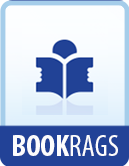It is helpful to think of the instincts of the beasts, how true and orderly they are, on their own plane, and how they are only perverted when the animals have come under the influence of man. Imagine Baloo, the bear in Mr. Kipling’s “Jungle Book,” being asked how he managed to keep so well and rested. He would look a little surprised and say: “Why, I follow the laws of my being. How could I do differently?” Now that is just the difference between man and beast. Man can do differently. And man has done differently now for so many generations that not one in ten thousand really recognizes what the laws of his being are, except in ways so gross that it seems as if we had sunken to the necessity of being guided by a crowbar, instead of steadily following the delicate instinct which is ours by right, and so voluntarily accepting the guidance of the Power who made us, which is the only possible way to freedom.
Of course the laws of a man’s being are infinitely above the laws of a beast’s. The laws of a man’s being are spiritual, and the animal in man is meant to be the servant of his soul. Man’s true guiding instincts are in his soul,—he can obey them or not, as he chooses; but the beast’s instincts are in his body, and he has no choice but to obey. Man can, so to speak, get up and look down on himself. He can be his own father and his own mother. From his true instinct he can say to himself, “you must do this” or “You must not do that.” He can see and understand his tendency to disobedience, and he can force himself to obey. Man can see the good and wholesome animal instincts in himself that lead to lasting health and strength, and he can make them all the good servants of his soul. He can see the tendency to overindulgence, and how it leads to disease and to evil, and he can refuse to permit that wrong tendency to rule him.
Every man has his own power of distinguishing between right and wrong, and his own power of choosing which way he shall follow. He is left free to choose God’s way or to choose his own. Through past and present perversions, of natural habit he has lost the delicate power of distinguishing the normal from the abnormal, and needs to be educated back to it. The benefit of this education is an intelligent consciousness of the laws of life, which not only adds to his own strength of mind and body, but increases immeasurably his power of use to others. Many customs of to-day fix and perpetuate abnormal habits to such an extent that, combined with our own selfish inheritances and personal perversions, they dim the light of our minds so that many of us are working all the time in a fog, more or less dense, of ignorance and bondage. When a man chooses the right and refuses the wrong, in so far as he sees it, he becomes wise from within and from without, his power for distinguishing gradually improves, the fog lifts, and he finds within himself a sure and delicate instinct which was formerly atrophied for want of use.




